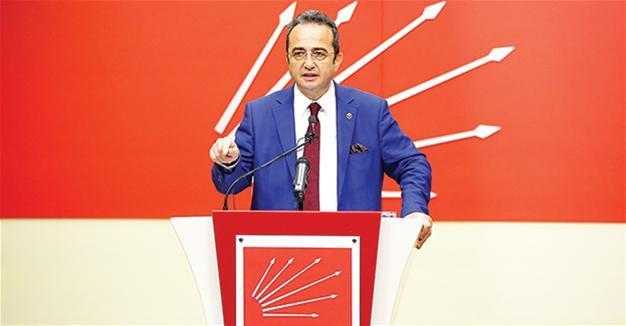Main opposition CHP appeals to Council of State amid referendum objections
ANKARA
 The main opposition Republican People’s Party (CHP) has appealed to the Council of State to repeal the Supreme Election Board’s (YSK) decision that changed the legal criteria of the validity of unsealed ballots on referendum day. Prime Minister Binali Yıldırım, however, has called their efforts “futile,” calling on the CHP to “respect the result” of the April 16 referendum on shifting Turkey to an executive presidential system.
The main opposition Republican People’s Party (CHP) has appealed to the Council of State to repeal the Supreme Election Board’s (YSK) decision that changed the legal criteria of the validity of unsealed ballots on referendum day. Prime Minister Binali Yıldırım, however, has called their efforts “futile,” calling on the CHP to “respect the result” of the April 16 referendum on shifting Turkey to an executive presidential system.“We are appealing to the Council of State, requesting the repeal of the initial rule of YSK that deemed unsealed ballot papers valid. In addition, we are requesting for the stay of the execution in order to prevent the referendum results to be officially announced by the YSK,” CHP Deputy Chair Bülent Tezcan said in a written statement on April 21.
“We will continue our legal struggle till the end to protect the rights of 49 million citizens, irrespective of whether they voted ‘yes’ or ‘no,’” Tezcan added.
Prime Minister Yıldırım, however, stated that the YSK’s decision was final and the opposition party’s efforts were “futile.”
“These are fruitless efforts. There is no need to waste people’s time any more. Fundamentally, the YSK has resolved objections related to the vote and that is it. The decisions of the YSK on the elections are certain and there are no further legal avenues above it,” he said.
“They can appeal. They can appeal anywhere they like. But in the end there are no courts that can override a nation’s decision,” Yıldırım said, accusing the CHP of “not being able to respect the majority’s vote.”
The CHP says the YSK’s decision breached Turkey’s electoral law, adding that there were irregularities during the vote-counting process that cast a shadow over the legitimacy of the votes.
“The YSK is not a legislative organ. It has the obligation to implement the law. But unfortunately on April 16, the YSK not only cast a shadow on the referendum, it also brought its legitimacy into question with the decision it took despite the law,” CHP Deputy Chair Tekin Bingöl said at a press conference on April 21.
Amid the electoral board’s rejection to three opposition parties’ application to cancel the referendum on April 19, the CHP remains adamant to seek further legal avenues to support their ground.
The CHP is currently evaluating four separate options to decide on whether to appeal to the Constitutional Court and the European Court of Human Rights (ECHR).
The ECHR, however, only accepts applications once all domestic legal avenues are exhausted, prompting the party to question whether the Constitutional Court could be considered a domestic legal avenue.
It is argued that the electoral board’s decision is deemed final and it is closed to any further appeals. However, the CHP is dedicated to examine the legal framework of the process.
“We will make decisions by taking all legal possibilities into consideration. Our decisions will be concrete. We will take steps by receiving opinions from experts and academics,” Bingöl said.
Meanwhile, Tezcan met with legal professionals and ECHR experts on April 20, discussing whether the YSK’s ruling and the referendum process would be within the jurisdiction of the Constitutional Court or the ECHR.
“In my legal opinion, it can be appealed,” said Tezcan, who is also a lawyer.
“The ECHR cannot rule for the cancellation of the referendum, however if it convicts, the illegitimacy of the referendum will be settled by the ruling of an international court,” Tezcan said.
The CHP will conduct several other internal meetings with its parliamentary group and party caucus, as well as provincial heads and party majors, in April, in order to determine the final roadmap for legal remedies.
Irregular ballots under focus
The CHP is also suspicious of referendum ballots that are considered as “block votes,” which are votes that received the same result in an overwhelming majority.
In 960 of the ballot boxes, the “yes” votes were all deemed as block votes, while in 173 of them, “no” votes were deemed as block.
All 94,585 votes in one ballot box were “yes,” while all 7,583 in another box said “no.” Some 90 percent of 9,741 ballots in a box said “yes,” corresponding to 1,862,505 people. Some 90 percent of the 4,331 ballots in a box said “no,” corresponding to 1,073,669 people.
The party also stated that in 2,612 ballot boxes, there were 27,685 voters, which is more than the registered number of voters. Some 302 of these ballots contained 100 percent “yes” votes.
















